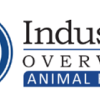Recent Posts
- Cultivating A Champion Culture: Balancing Performance and People in Animal Health
- How Stable are Earnings in Animal Health? Results of the Animal Health Jobs 2025 Salary Survey
- Entry Fees for the Race for Talent: Results of the Animal Health Jobs 2025 Salary Survey
- Looking In The Gift Horse’s Mouth: The Pros and Cons of Counteroffers in Animal Health
- Beyond the Hire: Why Animal Health Needs More "Relationshipping," and Less Recruiting
Most Popular
-

How Stable are Earnings in Animal Health? Results of the Animal Health Jobs 2025 Salary Survey
-

News to Know from Brakke Consulting’s 2025 Animal Health Industry Overview
-

How Will Artificial Intelligence Change Jobs In Animal Health?
-

Entry Fees for the Race for Talent: Results of the Animal Health Jobs 2025 Salary Survey
-

Animal Health Jobs Survey of Candidate Attitudes About the Industry Spring 2021

Today Looks Good; Tomorrow Will be Even Better
Animal Health Jobs Survey of Candidate Attitudes About the Industry Spring 2021
Executive Summary
"A community of intelligent passionate people who take pride in their work. I love Animal Health... each day brings new challenges "
It's raining cats and dogs - and cattle, fish and hedgehogs. The animal health industry has grown consistently for more than 10 years, attracting attention and investment. But understanding an industry requires more than reading market forecasts; it requires understanding the people.
This study of members of Animal Health Jobs explored three subjects: participant attitudes towards the animal health industry, attitudes about their jobs and companies, and perception of the animal health industry's future.
Employees describe working in animal health as rewarding, challenging, and exciting. Once here, they want to stay. Compared to respondents not currently in the industry, animal health employees are happier at work and more likely to recommend their company as a good place to work.
While compensation was the top reason for staying in their current role, respondents rank meaningful work a close second. They also value personal relationships and the chance to improve the lives of animals and people.
Looking ahead, most animal health industry members see the potential for career growth and opportunity; this is borne out by 2020 results, industry forecasts, and innovative new technologies that continue to improve interactions between people and animals in the companion and food animal segments.
Introduction
Animal Health is a diverse industry, encompassing vaccines and pharmaceuticals, feed and nutrition, diagnostics and veterinary services, pet care, precision farming, and more. Whether you eat meat, fish, or dairy, or love your dog, cat, horse, or turtle, the animal health industry and its employees impact your life. Like many industries animal health is experiencing a wave of change, from a surge in innovative start-ups to consolidation of the major players.
Understanding the industry requires more than just forecasts; understanding employees' opinions and expectations helps one to fully evaluate the potential for this multi-faceted industry.
This report covers the first attitudinal survey of animal health job candidates by Animal Health Jobs, a proprietary job board focused exclusively on the US animal health and animal nutrition industry. The survey was designed to determine attitudes about the animal health and animal nutrition industry among people working in or looking for related jobs.
The survey explored three areas: current thoughts about the animal health industry as a whole, attitudes about participants' current jobs and companies, and perception of the industry's future.
Participants were members of the Animal Health Jobs database in February 2021. Basic statistical calculations of the results were conducted; statistical significance was set at 90% (p=0.1).
Demographics: Who's In The Herd?
Gender and geography
Participant demographics aligned with the US population and industry trends. Study participants were 52% female and 48% male, consistent with US Census Bureau estimates for 2019 indicating that women are 51% of the US population. As a profession, veterinary medicine is heavily female; 65% of all veterinarians and 72% of corporate veterinarians are women.2 However with one exception discussed below, there were no meaningful significant differences between male and female responses to the survey.
Geographically, survey participants were based across the US, with most (35% each) from the South and West, 22% from the Midwest and 9% from the Northeast. Another 18% declined to provide their location.
Time and seniority
Among the respondents, 60% were working in animal health at the time of the survey; 79% of those had spent their entire career in animal health. Among all respondents, 40% had worked in animal health for their entire career. The mean working time in the animal health industry of all respondents was 15.5 years.
An overwhelming majority of the participants (76%) were individual contributors; 18% were first-level managers ('manager of people'). The remaining 6% were senior managers ('manager of managers'). This decrease in numbers with increasing job level is consistent with the pyramidal structure of most animal health companies. Individual contributor positions generally make up the bulk of the employee population, while fewer manager and senior manager roles exist.
In addition, the role of online jobs boards like Animal Health Jobs changes with seniority. Individual contributors and first level managers commonly find roles on job boards. Senior executives are more likely to find new roles through executive search or networking.
Our Heart Beats For Animal Health
Overall, survey respondents are positive about today's animal health industry. Members often feel an emotional connection to the industry; many say that they cannot imagine working elsewhere.
This may be a result of the large number of veterinarians, veterinary technicians and veterinary nurses employed in the industry, as well as a result of conditions in the industry itself. For these professionals, animal health is more than a business. Whether bringing people and their pets closer together, or ensuring the quality and safety of the meat, fish and dairy products in our national diet, people in animal health are drawn to the work for emotional as well as economic reasons.
That attitude shows in company missions and cultures. The largest animal health company, Zoetis, states that its purpose6 is "to nurture the world and humankind, by advancing care for animals."
Current attitudes and feelings
To explore this employee-industry connection, we asked respondents who had also worked in other industries, "How would you describe your feelings about working in the animal health industry?"
More than two-thirds (70%) reported that they planned either to only work in the animal health industry, or that it would "take a lot" to get them to work outside the industry. Only 14% of respondents would "easily take another job outside of the animal health industry."
Once someone joins the animal health industry, they are likely to engage with it and want to stay. This is evidenced by the respondents' 15.5 year mean working time in the industry.
Career descriptions
Respondents' free-text descriptions of their careers provided insights into their level of engagement and career satisfaction.
I love Animal Health... each day brings new challenges "
Overall, two-thirds of the comments were generally positive, with words like "rewarding," "challenging" and "exciting." Longer comments included "I love the animal health industry!" and "fun working with people who truly love pets and love their jobs."
Another quarter of the comments were neutral, of which half were job titles or descriptions. Less than 10% of respondents used negative words to describe their career. Of these, half had lost their jobs in recent layoffs that affected animal health as well as other industries. All had enjoyed their careers prior to being laid off.
Engagement: what would you miss if you left?
One means of evaluating engagement is to explore what employees would miss if they left the industry. Answers to the open-ended question, "If you left the animal health industry, what would you miss the most?" were collected for this analysis.
Responses reflected the interpersonal bonds and the importance of the industry's mission to improve the lives of animals and their owners. Top items specified by respondents were the people, the animals, making a difference, and the industry network.
Typical respondent descriptions of what they would miss included: 'The feeling that I am helping animals every day" and "Working with people and organizations whose goal is to improve the quality and quantity of a pet's life." Other factors cited included variety and remuneration.
One respondent who was not working in animal health at the time of the survey summarized the feelings of many respondents: "I did leave, and am trying to come back. I miss the animal interactions, but also the satisfaction that goes with knowing you have helped an individual or company that in turn is helping, feeding, or providing opportunities for others."
Interestingly, the aspects that respondents would miss differed by gender. Significantly more men than women valued the people and the industry network; significantly more women than men valued the animals and making a difference.
Overall, animal health employees remain engaged with the industry despite the challenges of 2020 and the COVID crisis. They are generally positive about their careers and the industry's goals. People who work in the animal health industry are, as we say, here because they want to be.
"[I would miss] the friends and the Vet space altogether. It really is a great industry."
Animal Health Is My Happy Place: Assessing Current Roles And Companies
Our survey explored how satisfied employees are with their current jobs and companies, and what inspires them to stay. These questions provided some of our most interesting insights about animal health versus other industries.
Job satisfaction: are you happy today?
In answer to the question "On a scale of 1-10, how happy are you at work right now?" the average rating among all respondents was 6.0, just above the midpoint and a surprisingly low number given the positive results to other questions. A deeper look reveals a different story.
The mean score from respondents working in animal health at the time of the survey was nearly a point higher than the overall mean, at 7.1; that of respondents working outside the industry was more than a point lower, at 4.7. Although these differences were not significant, the trend is consistent with other results showing that animal health employees are happier than those working in other industries.
Furthermore, significantly more people working in animal health (68%) reported being happy at work. Of those not currently working in animal health, only 38% reported being happy at work.
By contrast, only 7% of animal health incumbents reported that they were not happy (score 0-3), while 41% of those working outside the industry felt that way. Both of these differences were significant.
For survey respondents, the animal health industry does seem to be their happy place.
Company connection: Is this a good place to work?
Again rating their current situation on a scale of 1-10, respondents answered the question "How likely are you to recommend your company as a good place to work?" with a mean score of 7.
Significantly more respondents currently working in animal health were likely to recommend their company as a good place to work (75%); only 42% of those working in another industry would do so.
More than a third (36%) of people working outside animal health were not likely to recommend their company as a good place to work (score 0-3). By contrast, only 4% of respondents in the industry were as negative about their employers.
Nearly half (49%) of the respondents are actively looking for new roles in the animal health industry; another 23% are looking for roles in animal health or another industry. Of those working in the industry, 36% are content to stay where they are; of those not in the industry at the time of the survey, only 9% were content to stay. This difference was significant.
Why are you here?
We have all heard the saying that people don't leave jobs, they leave managers. Why do people choose to stay with a company? Those respondents not actively looking for new roles were presented with the ranking question, "what makes you stay at your company?" The question involved ranking 5 predefined factors in order of importance.
In general, the most personal and practical factors provided the most important reasons to stay. All 5 items ranked closely together (range 2.4-3.5), indicating that no single factor dominated. In order of importance (most important to least important), the factors were:
- Appropriate compensation, including salary, benefits and financial incentives
- The job itself, which provides meaningful work
- A supportive manager who listens to and respects her or his employees
- A team with whom the employee enjoys working
- A company culture of strong values, where employees like 'the way we do things
Employees in the animal health and animal nutrition industry have found their sweet spot. They are happier with their jobs and their companies, and less likely to be looking for change, than their counterparts in other industries.
People who have been in the industry and left often miss it, and try to return. "a community of intelligent, passionate people who take pride in their work"
Bullish About The Future
What's next?
Survey participants generally feel positive about the outlook for the animal health industry. When asked to rate the industry as a place to work and build a career (1 lowest, 10 highest), the average rating was 8, indicating that these candidates see good times ahead. Furthermore, 80% of all respondents see a bright future (score 7-10) for the animal health industry. Not one respondent rated the future as "not bright at all" (0-1).
These opinions are consistent with market research from industry experts.
Growth projections for the animal health industry remain positive at 5%, with 9 of the top 11 companies in the industry reporting growth in 2020.3 For more information on this, please reach out to info@brakkeconsulting.com.
The companion animal side of the business continues to be strong; 78% of companion animal veterinary practices reported healthy increases in 2020 revenues; 48% of practices reported YOY revenue growth of more than 10%.3 In 2020, Pet Care in the US was a $103.6 billion business, including $31.4 billion in veterinary care and products, and $42 billion in pet food and treats, increases of 6.7%, 7.2% and 9.7%, respectively.1 Increasing appreciation for the human-animal bond and for the role of pets as family members are expected to drive continued growth for these segments.
The food animal segment was challenged by severe storms early in 2020, temporary slowdowns and closures of meat processing facilities during the first part of the COVID crisis, and trade factors; this was balanced by the growth of precision animal production, with its use of new technologies to more closely monitor and support individual animals. 3
The COVID-19 pandemic changed demand for meat, shifting much of it from hotels, restaurants, and institutions, to home use. USDA forecasts 2021 growth in beef production, milk production efficiency (pounds per head) and strong pork prices.5 Support and debt relief to farmers through the American Rescue Plan Act and the reopening of the hospitality industry are also expected to positively affect the food animal segments.
In a recent survey of perceptions of 25 business and industry segments, Americans ranked farming and agriculture number one, above the grocery and restaurant industries, and well above healthcare.4 Consumers appreciate the hard-working people who produce their food, whether that food is animal or vegetable.
In both companion animal and food animal segments, growth in nutritionals and diagnostics will open up new opportunities for companies and employees. All of these factors are likely causes for employee optimism about the future of animal health.
Conclusions
Animal health continues to be a unique industry, combining the best of health care, innovation and technology with the most personal of goals: food and family. Most people who work in the industry are committed to staying here. They are engaged with their jobs and their companies.
Industry insiders are optimistic about the future of the business. This optimism is supported by the positive trends in both companion and food animal segments. Companion animal health continues to be resilient in the face of economic factors, and the food animal business is benefitting from new technologies, government support and the continued demand for high quality protein in the US, whether at home or in restaurants.
At Animal Health Jobs, we are also optimistic about the industry. We bring together the best jobs and the best candidates, creating connections that will continue to drive innovation, growth, and the unique animal health culture.
About Animal Health Jobs
Animal Health Jobs is a service of Brakke Consulting, the premier US consulting firm for animal health and related industries. Brakke Consulting's team of seasoned professionals support animal health and nutrition companies in managing healthy, growing and profitable businesses.
Brakke Consulting has been a key part of several landmark studies in the animal health industry, most recently the Merck Animal Health Veterinary Wellbeing Study (2018 & 2020), the first study to monitor veterinarians' level of wellbeing and identify factors that negatively and positively impact their mental health.











Comments